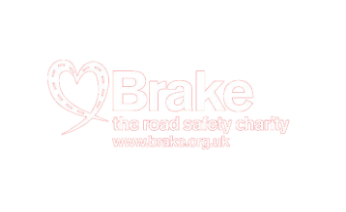Autumn – a firm seasonal favourite amongst most Brits. Fireworks, toasted marshmallows, leaves on the ground, cosy nights in by the fire. What’s not to love?
As it creeps upon us again for another year, make sure you are taking the correct precautions to be set for the conditions to come.
Follow our tips below to combat any issues the weather may throw at you.
Glare
As the colder months approach, low levels of sunlight can create problems for road users and their vision.
Ensuring your windscreen is always clear, with no marks or smears will help improve your visibility, should the sun create a glare on the glass.
Checking your window wiper blades are not worn will save you hassle down the line. The sun can dry out your wiper blades causing cracking which could lead to shedding of the blade. This would cause a failed MOT so make sure to replace them immediately if they are damaged.
Alongside this, your screen wash should be regularly topped up to ensure there is enough for use if dirt and debris builds up.
It may even be handy to carry a pair of sunglasses in the car, for when it gets really bright.
Make sure to keep an eye out for vulnerable road users such as pedestrians, cyclists and motorcyclists that may be difficult to spot if there is a glare or a low level of sunlight.
Fallen leaves
The orange leaves on the ground may look pretty, but they can prove to be a pain for drivers.
Dependent on where they have fallen, they may cover vital parts of the road such as where the pavement starts, road markings or even potholes, so take extra care.
If you find you must drive through them on country roads, take caution, as they can be wet and slippy!
In some cases, wet leaves can be just as dangerous as black ice.
Keeping your speed down will decrease your chances of skidding and keeping a greater distance between the car in front will ensure you have enough stopping distance should you need to brake suddenly.
Frost
Frost will form when a surface outside gets colder than dew point. Dew point is where the air gets so cold that water vapor in the atmosphere turns to liquid and freezes.
You should be just as cautious driving when its frosty out as when there is snow or ice. Make sure you keep to a gentle speed, steer gradually and do not apply the brakes harshly to avoid sliding.
Whilst your initial reaction may be to hit the brakes if you do start to skid, remember to remain calm and steer gently into the skid.
Fog
Fog, like frost, is formed when the air cools past dew point.
It can rapidly reduce visibility, especially on winding roads where corners are hard to see round in the first instance.
Use your fog lamps when visibility falls below 100m. You should check your lights are fully functioning before a journey to make sure you are not caught in the dark, literally!
Again, allow plenty of room between you and other drivers to ensure everyone has enough space, should anyone need to come to a sudden stop.
Antifreeze
Antifreeze liquid is mixed with the water in your engines cooling system which lowers the freezing point and helps to prevent corrosion. This will ensure that the liquid in your car will not freeze, which would otherwise cause you a spot of bother.
Make sure to check your levels and top up any liquids you might be low on before any journey you make.
Keeping spare in your car is also a good idea to make top-ups and avoid getting caught short.
Tyres
Tyres should never be overlooked as ultimately; they are the most important part of your vehicle to keep you moving safely.
Check for wear such as bulges or cracks in the sidewalls and make sure that you have enough tread depth. The legal limit stands at 1.6mm but 3mm is a more realistic figure to aim for during the colder months.
Remember to always check your pressure too. Your stopping distance is already increased when the roads are wet, but underinflated tyres increase this even more.
Winter tyres have better grip on them, so if you are planning on making a lot of journeys during autumn and winter in colder, wetter, icier climates then they may be a smart investment.
Car essentials
On any journey, you should always prepare yourself for the worst, just in case. The old saying goes – better safe than sorry. Taking items to keep you safe and warm is a good idea.
Carry things in your car such as:
- Torch
- Blanket
- Phone charger
- Water
- De-icer/scraper
Having these to hand will ensure that you are ready in any situation, should the worst happen and you breakdown or have an accident. And whilst not all road users may be as cautious as you or take as great care, at least you have done all you can to prevent harm from coming to you or other road users.
Share to:
Find out more
Find out how Reflex Vehicle Hire can help your company.
Call 0330 460 9913 or visit our contact us page.








@2x.png)

